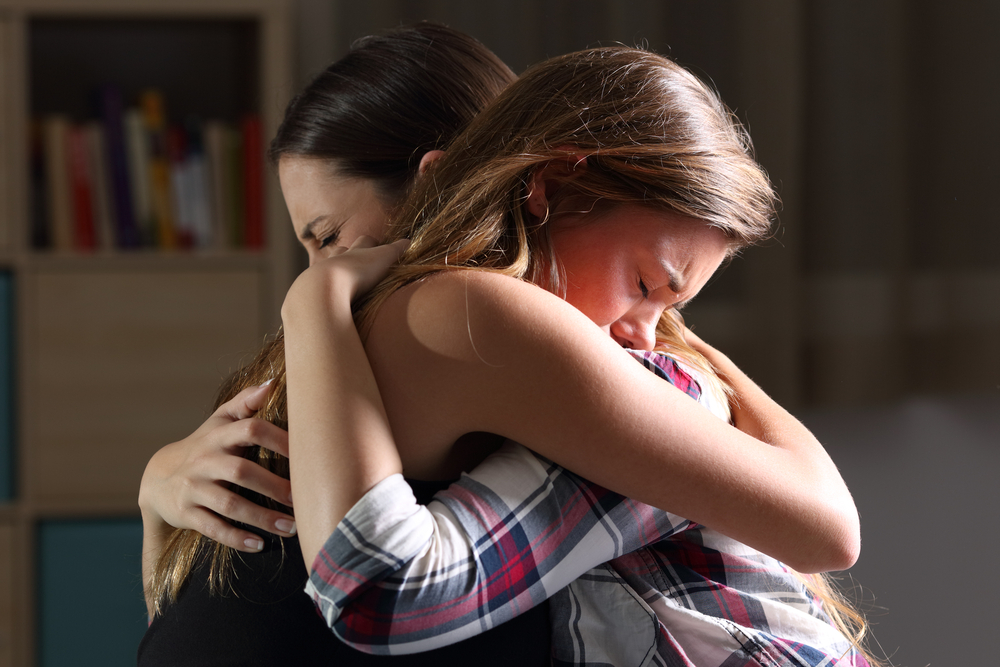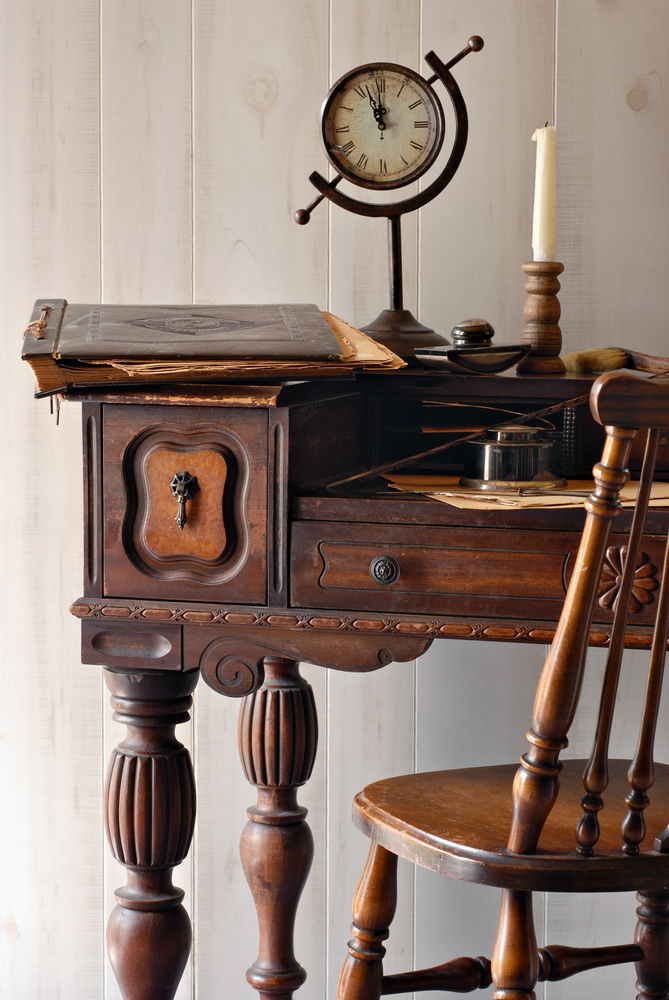One of the greatest difficulties you will ever endure is the death of a loved one. Whether it’s a child, spouse, parent, sibling, grandparent, or close friend, all are very traumatic experiences. It’s hard enough to face the sad fact that someone you love and care about is gone, but dealing with an estate after someone dies, can be extremely hard and stressful. Here’s what happens to a storage unit when someone dies:

How To Get Storage Unit Release After an Untimely Death
Occasionally here at Moove In Self Storage, one of the friendly folks renting a storage unit from us passes away. If someone you love was renting a storage unit when they died, getting it released is a sad necessity. To do it correctly, and get legal access to their belongings in storage, read on. We have information and tips to help you do that and get through this difficult time with less stress. Here’s what you should make happen with a storage unit when someone dies:
Keep Paying Their Monthly Rental Fee Until Everything is Sorted Out
One mistake many folks make when a person passes is to stop paying the rent on their storage unit. In the stress of the moment, it’s easy to forget. But, here’s the thing; if it doesn’t get paid, their things might have to be auctioned off. (It’s written into the contract they signed when your loved one rented the storage unit.) We don’t like doing it, so please make sure to pay the rent every month until their storage unit is emptied.
If The Former Renter Has Given You Access
If the person who rented has given you access to their rental unit, you have several options:
- You can leave everything in their storage unit. Make sure to switch the monthly rental payment to one of your credit cards or bank accounts. That way, the monthly rent gets paid, and the storage unit isn’t auctioned off. Also, if you like, you can come and look through everything at your leisure.
- You can empty the storage unit and end the monthly contract. Please give us at least 30 days’ notice. Also, any back rent would need to be paid in full, please.
- You can sell the contents of the unit to a company that purchases entire storage units. (Google one in your area.)
If The Former Renter Hasn’t Given You Access
If the person who passed didn’t give you access, you’ll need to get documentation that you’re the executor of their estate, please. This is a legal process that might take some time and patience. What happens with a storage unit when someone dies is that their things in storage can stay there during this time so long as the monthly rent is being paid.
If the person who rented died without a will, it might take extra time to become executor of their estate. Unfortunately, we can’t allow anyone into their storage unit who isn’t, so please be patient. We will work with you as best as we can, but we can’t release anything until we have the documentation.
How to Prepare Your Storage Uit In Case You Die Unexpectedly
Nobody likes to think that they might die suddenly, but it does occasionally happen. That’s why, when you rent a storage unit from Moove In, we recommend you do a few things just in case. They include:
Make Sure Someone Knows You Rented a Storage Unit
When you rent a storage unit, especially if you’re single, let someone know. We recommend someone in your family or whom you trust implicitly. Anyone you can count on to take care of your things if you suddenly pass would be a good choice. Let them know:
- The name of the storage facility. (Moove In, naturally!)
- Where the storage unit is located, including the full address.
- The number of your storage unit
Make Sure Someone In Your Family (or a Friend) Has Access to Your Storage Unit
Letting someone know about your storage unit is a great start. Even better, however, is to give them complete access to your storage unit, just in case. This is a great stress for relief for trusted parties to deal with a storage unit if it happens someone dies. To do that, read the steps below.
- Contact or visit your Moove In storage facility.
- Let the on-site manager know you want to add someone to the lease.
- Provide their name and contact information.
- Sign on the dotted line, and you’re done. A trusted family member or friend now has access to your storage unit and your belongings.
List The Person With Access as Your Emergency Contact
Make sure the person you give access to your storage unit is also listed as your emergency contact. That way, if your rental bill is overdue, Moove In will contact them. Hope[fully, they will then be able to contact you. If not (because you’re gone), they will at least get a reminder that your things are with us.
If you’ve lost a loved one or friend, our sincere condolences. It’s an unfortunate reality of life that we see all too often here at Moove In. If you need help or advice, chat with us online at any time. Our team will do their best to help you get through this trying time with less stress.

How to Handle an Estate After Death Using Self Storage
Dealing with Emotional Attachment.
Dealing with an estate after death is about so much more than just sorting things into and out of boxes. What happens with a storage unit when someone dies is sometimes people hold on to a loved one’s possessions because they are trying to hold on to that person the only way they still can. Others feel they want to immediately discard everything, trying to avoid going through the process of grieving and just move on as fast as possible. Some people may feel guilty getting rid of items they normally would discard, with the mindset that they’re letting the deceased person down by doing so. Before you do anything, maybe you should ask yourself what the items really mean to you and how you might feel emotionally to go through them one by one.
Identify Personal Possessions.
According to the Self Storage Association, almost 9 percent of U.S. households rent a storage unit, meaning your loved one may be one of them. If your loved one gave you a key and the gate code to their self storage unit and notified the property manager that you can have access at any time, simply go there and clear out the belongings. However, if they didn’t grant you access, you should not expect the property manager to automatically grant you access to the belongings.
A self storage property manager can’t and won’t take your word for it that you are the correct person who can claim the belongings, nor should they. The property manager has no way of knowing if two days later another family member will show up and say the same thing. Two of the most stressful events in life are marriage and death. It’s not the manager’s responsibility to get involved with family matters such as these, which is why we need legal proof of ownership or access. I’m sure you would be very upset if long-lost cousin Joe showed up and cleaned everything out because we let him before you could make it here, and he was estranged from your loved one for years and had no right to their personal possessions.

What about a will?
If the deceased person made a will, the executor would be given access to the contents of the self storage unit. If there is no will, you will likely need to go to probate court to get legal permission. The purpose of this court is to handle property and estate matters when there is no will to prove who should have access to those belongings.
Once the legal stuff is dealt with, you can choose to keep the storage unit and simply sign a new rental agreement so you don’t have to worry about clearing it out immediately. Otherwise, you can remove all the contents and vacate the storage unit.
Taking Time to Heal.
It may be better to put off making a decision of what to do with the person’s belongings for a while. Give yourself some time to start and deal with the process. Doing so will help you to have no regrets about giving away or discarding certain items, then later wish you had kept some of them.
There’s no timeframe in determining when is the right time to start sorting through the possessions – it’s going to be different for everyone and every situation. Your great-grandma who was 105 will be easier to deal with than your mom who was just 65. Regardless, try to give yourself at least a few weeks to process the loss before making major decisions about where belongings should go or to whom.
Also, give yourself time to actually go through your loved one’s things. Sorting gradually and spending small chunks of time over a few weeks or months will help you process your emotions. The act of going through these things will most likely surface memories and initiate feelings of sadness and grief. Most importantly, don’t be afraid to ask for help from a trusted friend or relative so you don’t feel overwhelmed.
Using Self Storage.
Now that you have given yourself some time to heal, don’t push it off too long. Sometimes people avoid dealing with an estate after death for years. The feelings of loss and sadness are scary. If you avoid sifting through and disposing of a loved one’s possessions for an indefinite period of time, you could remain stuck in your grief and unable to move on with your life.
If you are unable to sort through the items or throw them away right now, but you need to get them out of your loved one’s home so they can be sold and the estate can be closed; you can move them to a self storage unit as a first step. Talk to our friendly property managers and they will happily help you figure out what size and type of self storage unit you need. Choosing self storage as a solution, in this case, will take the pressure off and allow you time to grieve. You can wait a few months and then slowly start digging through everything as you have time.

A self storage unit can be helpful to keep some items after cleaning out your loved one’s home. Especially if you don’t have room for them at your place. You can store family heirlooms that your kids may want someday as well. Using storage, you won’t worry if they will be in your way or where you are going to put them until that day comes.
In Closing:
The death of a loved one is never easy, but it’s something we all have to deal with at some point. Choosing self storage as a solution to keeping your loved one’s possessions safe until you are ready to tackle them will bring your stress level down and provide you some much-needed time to cope. If you have any questions about the storage process and dealing with an estate after death, talk to an estate attorney. And, if you are in need of a storage unit for your loved one’s belongings, you can contact us for more information, talk to any of our property managers or reserve or rent a storage unit online today.
Originally posted 7/21/2016; Updated 8/17/2021

Do you have to pay on the storage unit after someone dies untill the belongings can be removed
You will need to pay the storage fees until you are able to move all of the belongings out of the unit. Thank you for asking!
My wife is executor of her mother’s estate.there are 3 units.her sister is a benefictior and wants to go through units tearing through packed boxes and making a mess.she wants to hire an experienced estate liquidator to move contents to her warehouse and auction off contents.as executor does she need to get her ok.
We recommend checking with your lawyer to make sure that you comply with the will before emptying out the units.